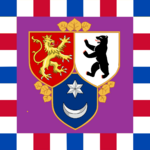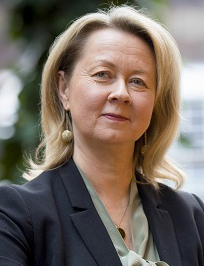President of Slovertia
| President of Slovertia | |
|---|---|
| Algá Brasní | |
 Presidential Jack | |
| Style | Her Excellency |
| Residence | Centrálny palác, Brativas |
| Appointer | National Assembly |
| Term length | 5 years |
| Constituting instrument | Constitution of Slovertia |
| Precursor | President of the Sloverti Republic |
| First holder | Ivan Resía |
| Website | slovpres.gov.sv |
Role and Powers
The president of Slovertia has a limited role in policy-making, as the office is largely ceremonial within the framework of a parliamentary republic. According to the constitution, the president is the supreme representative of the state both in Slovertia and abroad.
The president represents the Sloverti Republic externally and concludes and ratifies international treaties. He or she may delegate to the Government or, with the Government's consent, to individual members of the Sloverti Republic, the conclusion of international treaties. Historically all Sloverti presidents delegated this power to the Government.
Among the president's constitutional powers are nominating and appointing the prime minister. The president's choice is not limited, but by constitution the president through his/her decisions ensures due performance of constitutional bodies. Because the government of whoever is appointed prime minister must receive a vote of confidence in parliament, the president usually appoints the leader of the winning party or coalition in parliamentary elections.
The president can also veto any bill or proposal by the National Assembly (Slovertia), except for constitutional amendments. This veto can be overridden if the National Assembly passes the same bill again with a majority of all members of the Assembly, so this power is considered quite weak.
Among their other constitutional duties are signing bills into law, appointing ministers on the recommendation of the prime minister, and appointing various other state officials: generals, professors, judges, rectors, procurators and the like.
The president is formally the commander-in-chief of the Spoverti Armed Forces, but this role is ceremonial, because by the constitution when the president acts as the commander-in-chief his or her decision is valid only after it is signed by the prime minister or a minister authorized by the prime minister, and in such cases the Government is responsible for the president's decision.
